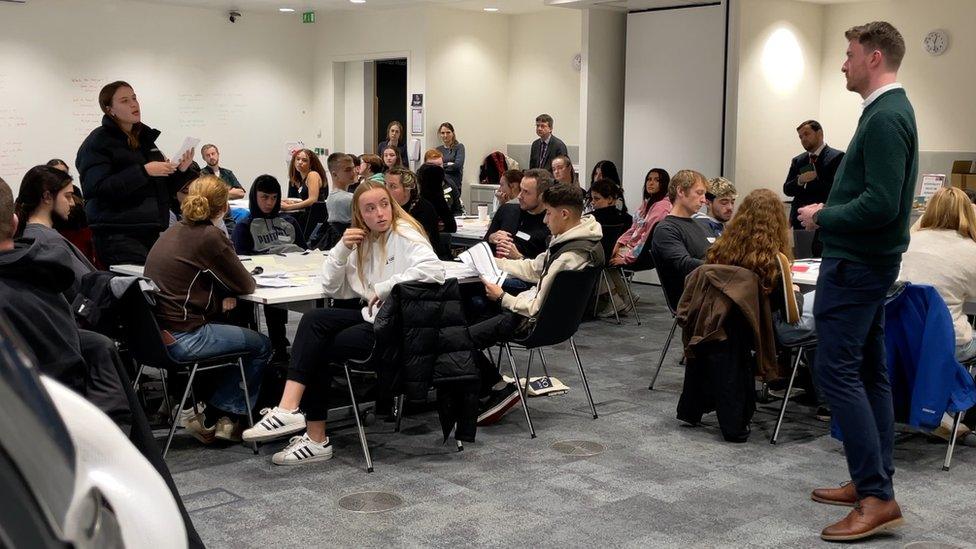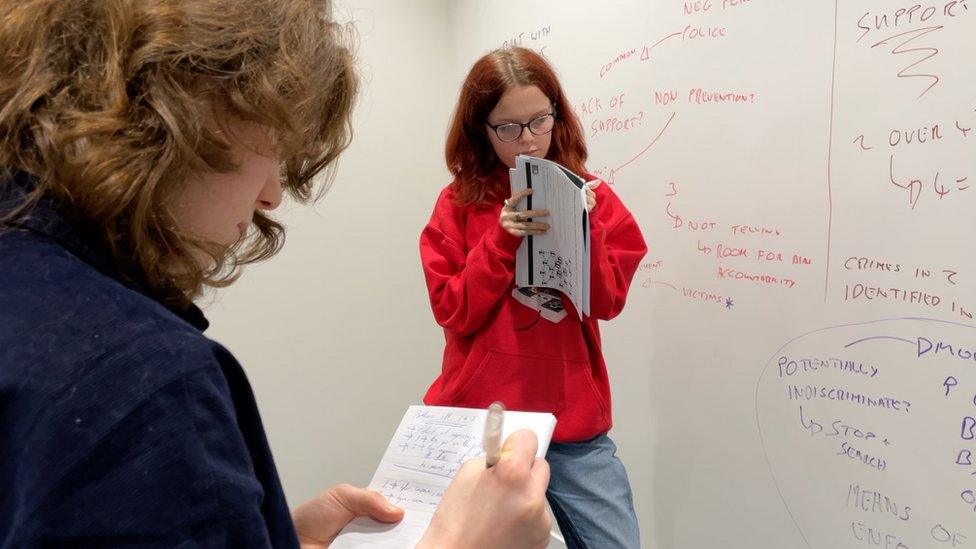Oxford University: Sixth formers discuss using data to prevent violence
- Published

Sixth formers have been discussing the ethics behind a police programme that would use data to locate risks of violence
Students have given feedback on a proposal to use "big data" to reduce violence.
Sixth formers visited Oxford Big Data Institute and were asked whether forces should use collected data to identify those who might be at risk.
The workshop was held by Thames Valley Violence Reduction Unit (TV VRU) to hear views about a potential programme.
One student said the information could be "pivotal" while another said they were uncomfortable with the idea.
Thames Valley VRU is researching the trend of violence triggering "follow-up" violence, and said children and young people are disproportionally most likely to become victims.

While some students said the use of data could be for the "greater good" others said they felt uncomfortable
The organisation suggested if a teenager is attacked their friends or siblings are at a higher risk of becoming victims too, or could even be considering taking revenge.
It said big data can be used to identify dangerous people, or those at risk of becoming victims of violence.
"Big data tends to be about lots of data that just is around that we make in the normal course of our lives," Mark Sheehan, chair of Thames Valley VRU Ethics Committee told the BBC.
"The more data you have, the more you can say about it," he said, explaining that the VRU would use data already held by the police, but could expand to include data from child services, local authority and social care services in the future.
But he added that the organisation needs to be careful about who decides the way the information is processed and used.
'Greater good'
"A lot of our dilemmas are around targeting our resources in the places where they're going to be most effective," said Owen Miller, a member of VRU's data team.
"We can't be everywhere at once so we really need to make sure we're focusing on those individuals where we know the most risk exists."
The unit has not started using data in live investigations yet, and a spokesperson said consulting with communities beforehand was important.

While some students said the use of data could be for the "greater good" others said they felt uncomfortable
The four Oxfordshire schools involved were The Oxford Academy, The Cherwell School, Wheatley Park School and Henry Box School.
The BBC spoke to the sixth formers from The Cherwell School before they presented their feedback to Thames Valley VRU.
Theo said: "There's a lot more than I would like personally to be out there but then the project has kind of made me understand that some of it is for the greater good."
But Artin said it made him "uncomfortable", and added: "It does kind of scare me a little bit thinking maybe what if teachers or my doctor or the local police knew that sort of information about me?"

Follow BBC South on Facebook, external, Twitter, external, or Instagram, external. Send your story ideas to south.newsonline@bbc.co.uk, external.